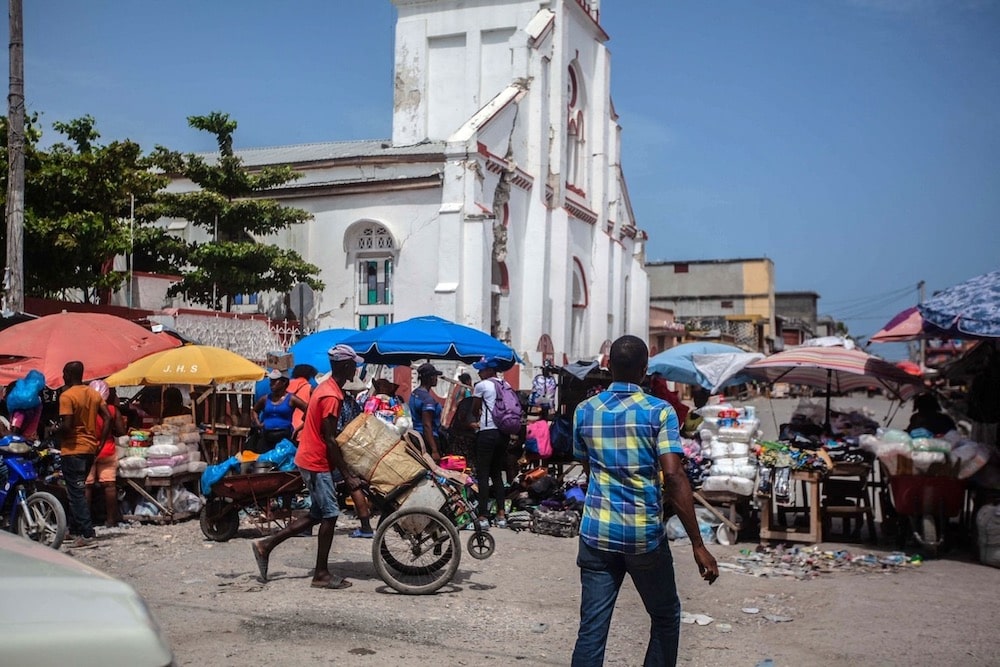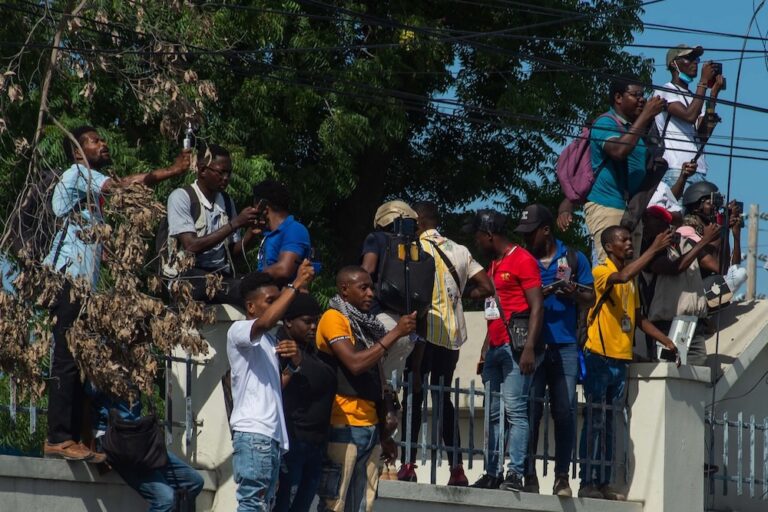The investigation into the death of radio journalist Garry Tesse has languished, leading his family and friends to accuse the government of a cover-up to protect the man who is in charge of prosecuting the crime.
This statement was originally published on cpj.org on 26 March 2024.
Haitian journalist Garry Tesse was on his way to work at a local radio station in the southern city of Les Cayes when he disappeared shortly after exiting a taxi. His naked and disfigured corpse was found six days later face down on the seashore close to downtown. One of his eyes was gouged out, his tongue was cut off, and his body was partially burned.
The October 2022 murder sparked outrage and street protests. But the investigation into the death of the popular 39-year-old radio journalist has languished, leading his family and friends to accuse the government of a cover-up to protect the man who is in charge of prosecuting the crime, Ronald Richemond. Tesse had gone on his radio show to accuse Richemond, an influential local prosecutor and political appointee, of plotting to have him killed weeks before the murder. Now, a former member of Richemond’s security team has provided new details on the alleged plot.
Three days after Tesse’s dead body was discovered, Richemond issued a video statement on Facebook in which he rejected the accusations against him. “The rumors circulating that it was me who killed Garry Tesse are false,” he said, adding that he would seek justice for the journalist and his family. To date, Richemond has not been charged with any crime. But his controversial handling of the case, which involved the arrest of another local journalist, has led to calls for a full investigation from local media organizations and the country’s public ombudsman.
CPJ contacted Richemond over text and social media multiple times with a list of questions, including whether he ordered the journalist’s murder. He never responded, nor did he answer several phone calls. Guy Delva, president of Haitian group SOS Journalistes, said he spoke with Richemond last year and that the prosecutor again rejected claims of his involvement in Tesse’s killing.
“This case must be resolved as soon as possible. A message urgently needs to be sent to prevent this chronic impunity from triggering more crimes against journalists,” said Delva, who has investigated the case.
Where impunity reigns
Even in a country that has slid into virtual lawlessness and gang rule following the assassination of the country’s president in 2021 – a state of affairs that prompted the March 12 resignation of Prime Minister Ariel Henry – Tesse’s case has shocked local journalists and lawyers accustomed to attacks on reporters being carried out with impunity.
The case exemplifies a long-running problem in Haiti’s justice system, experts say, pointing to a low conviction rate as investigations are snarled by political influence and crime is allowed to fester.
“The Haitian system has always been in the hands of one faction or another of the political class, or those with money,” said Robert Fatton, a Haitian-born professor of government and foreign affairs at the University of Virginia. “It’s a justice system within a mafioso system,” he told CPJ. Fatton pointed to the notorious case of journalist Jean Léopold Dominique, who was murdered at the gates of his radio station in 2000. It took 14 years to identify his killers, but a mastermind was never arrested.
In February, a judge indicted 51 people for conspiring in the 2021 assassination of President Jovenel Moïse, including his wife, Martine Moïse, but failed to identify the motive or who ordered it. Critics accuse the government of meddling in the investigation to hide its own complicity.
“There are judges occasionally who try to do the right thing, but they usually end up being fired or sometimes killed,” said Fatton.
Tesse’s critical reporting
The son of a rice farmer, Tesse was well read and liked to dress in a jacket, tie, and simple trilby-style hat. He was also a thorn in the side of local authorities for persistently denouncing alleged corruption and abuse of power. “Haiti lost an elegant man, a good man who only wanted to help others,” his widow, Yvana Despagne Tesse, 35, told CPJ.
Tesse’s radio broadcasts criticizing the bureaucracy of Les Cayes, the most populous city in Haiti’s south-west peninsula, made him into a local celebrity. He was also a lawyer and admired for his courage in speaking out for Haiti’s downtrodden masses, as well as the caustic tongue lashings he meted out to local officials.
“He stood up for the people who have no voice, the least fortunate who the government ignores,” said his younger brother, Vano Tesse. “He was an honest man who described things the way they are. Some people didn’t like that, so he created powerful enemies,” he added.



